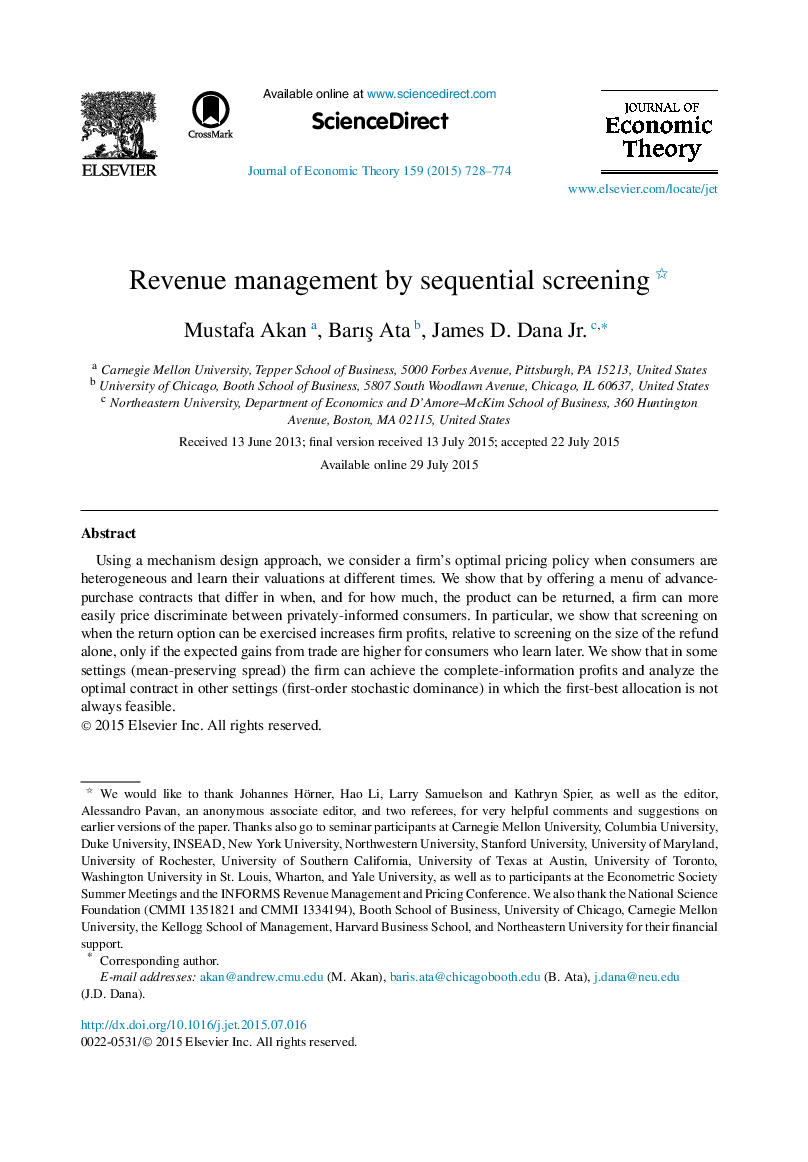| Article ID | Journal | Published Year | Pages | File Type |
|---|---|---|---|---|
| 956583 | Journal of Economic Theory | 2015 | 47 Pages |
Using a mechanism design approach, we consider a firm's optimal pricing policy when consumers are heterogeneous and learn their valuations at different times. We show that by offering a menu of advance-purchase contracts that differ in when, and for how much, the product can be returned, a firm can more easily price discriminate between privately-informed consumers. In particular, we show that screening on when the return option can be exercised increases firm profits, relative to screening on the size of the refund alone, only if the expected gains from trade are higher for consumers who learn later. We show that in some settings (mean-preserving spread) the firm can achieve the complete-information profits and analyze the optimal contract in other settings (first-order stochastic dominance) in which the first-best allocation is not always feasible.
